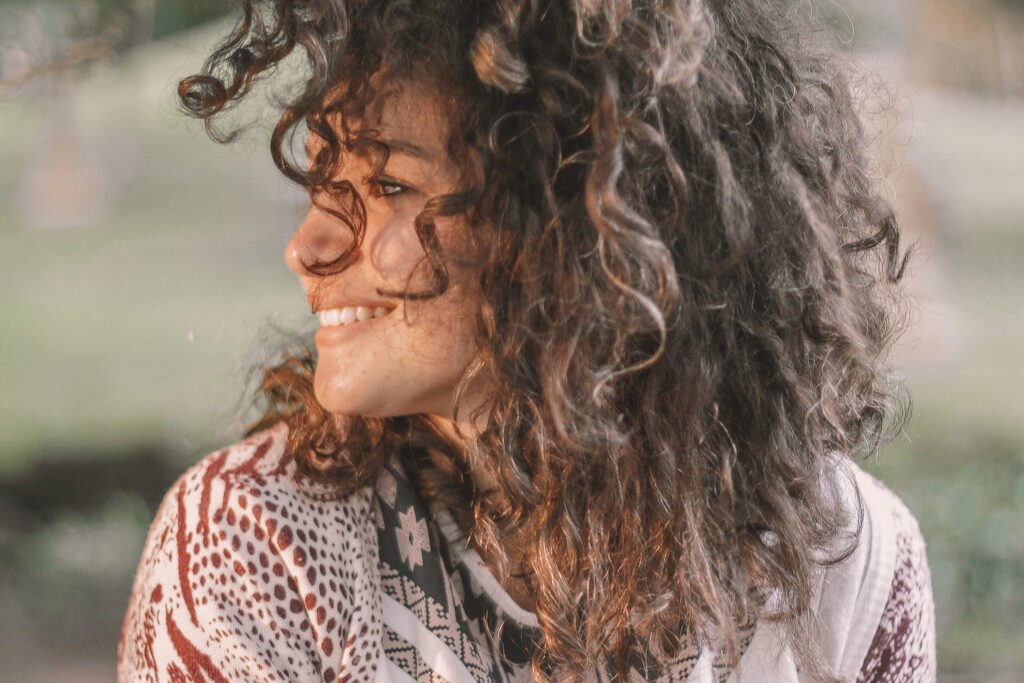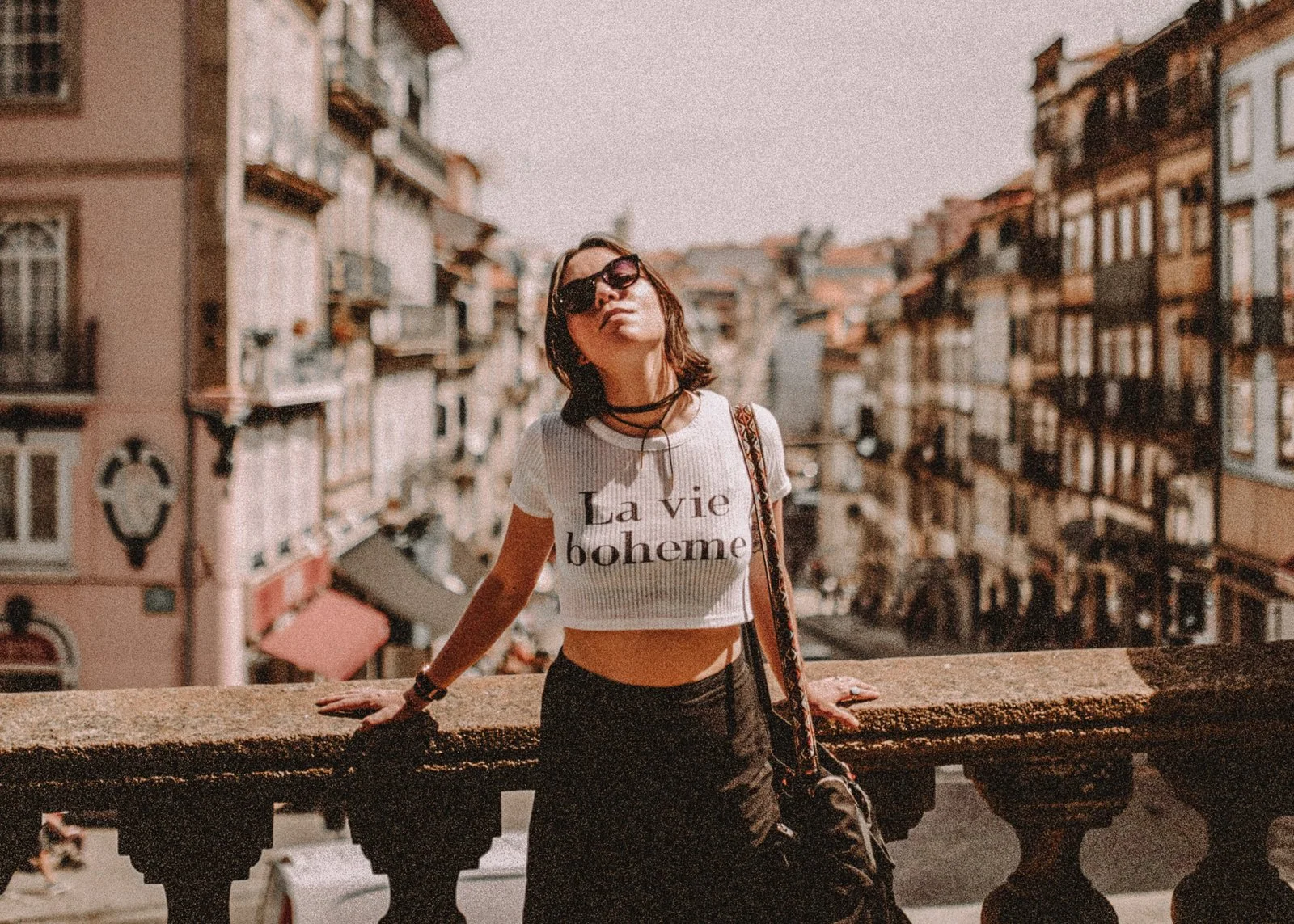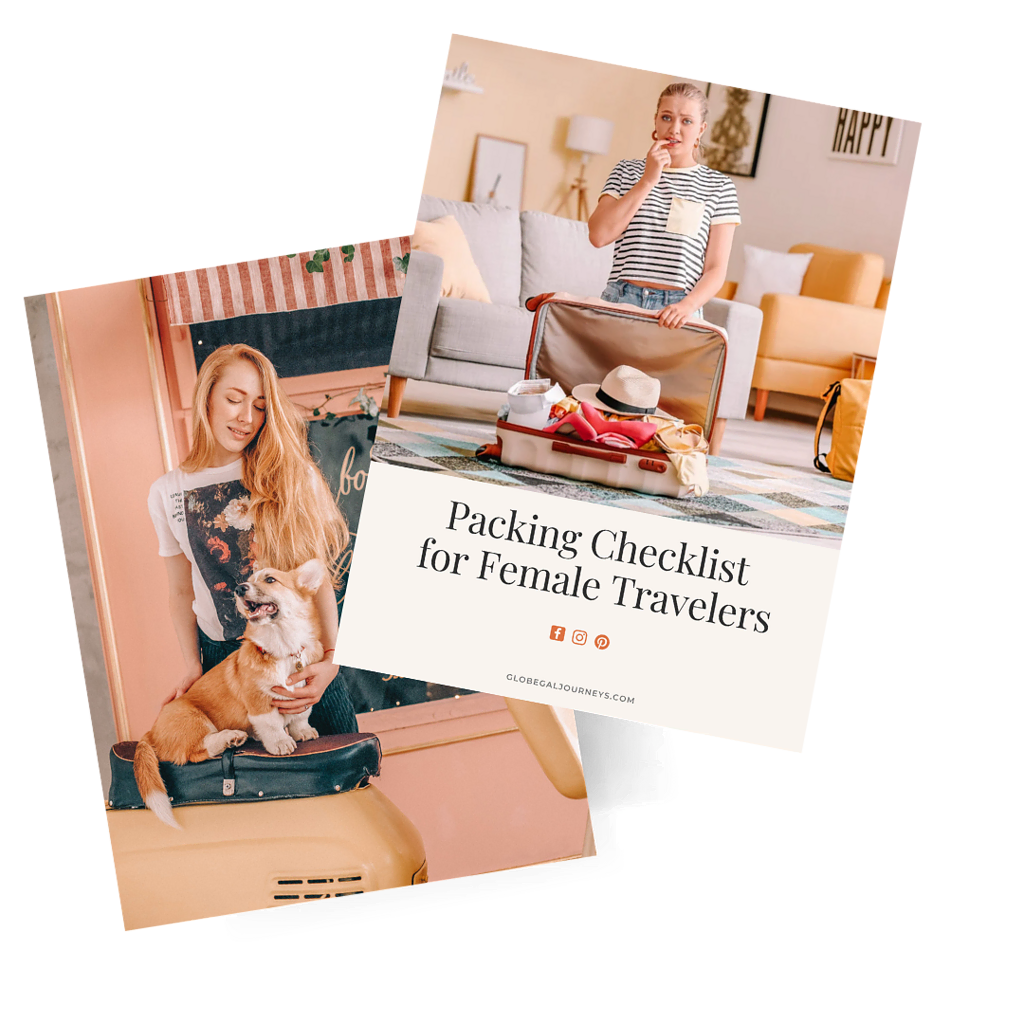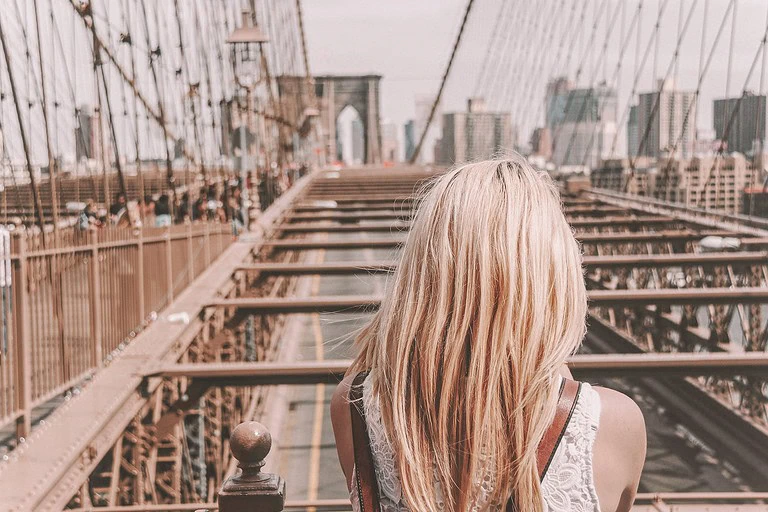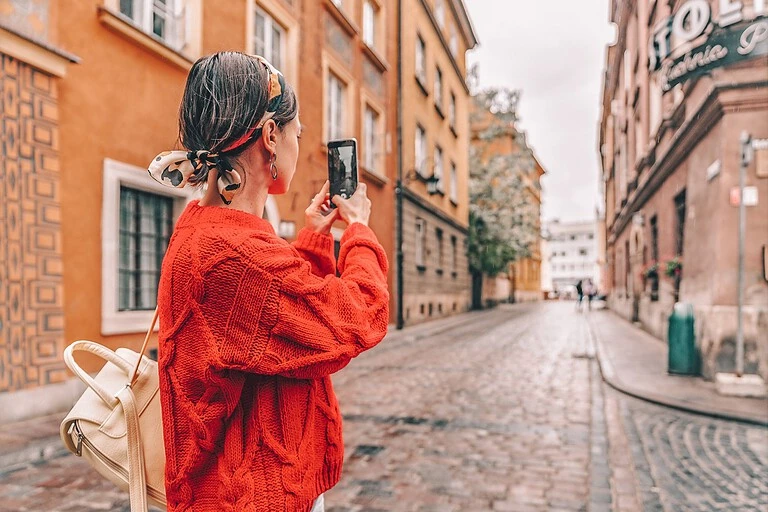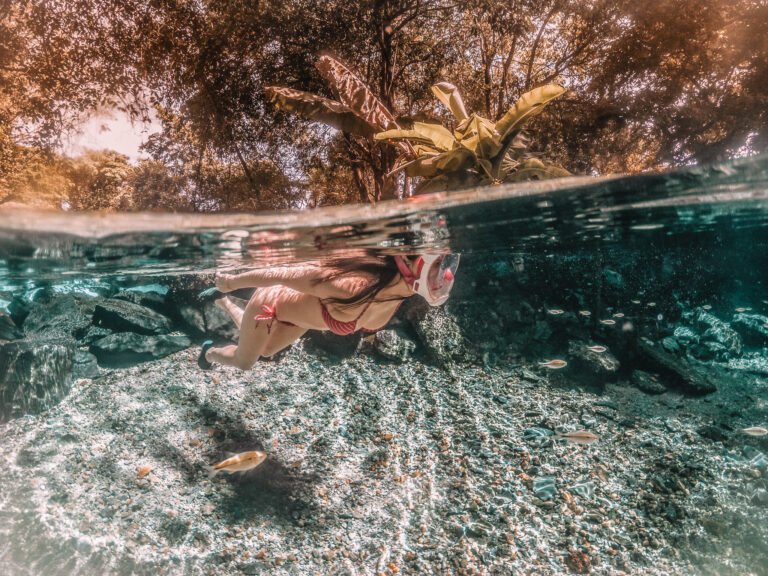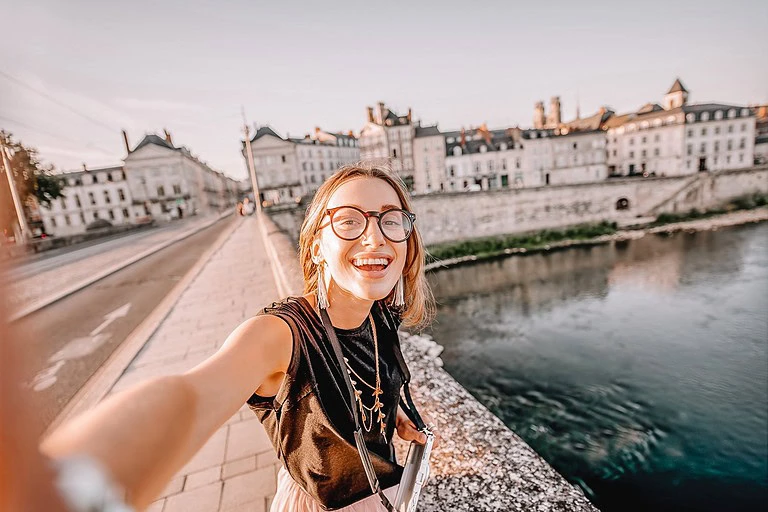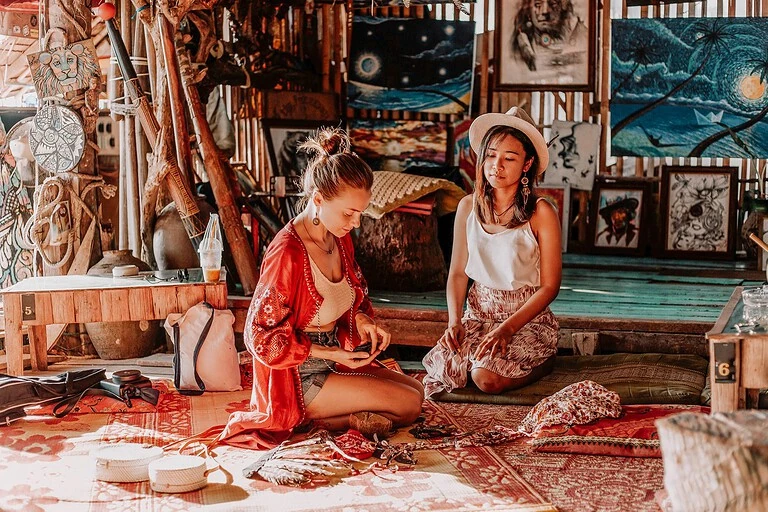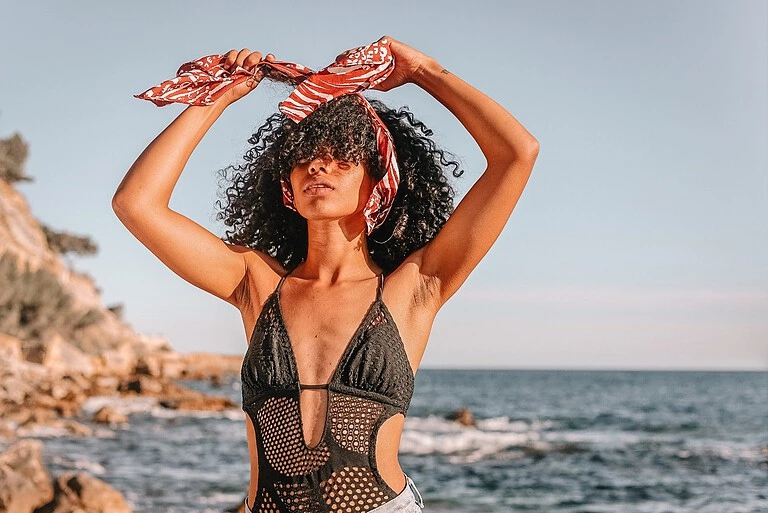Solo Female Travel Marketing: Must-Know Strategies for Brands!
This post may contain affiliate links to trusted partners, including the Amazon Services LLC Associates Program. If you purchase through these links, I may earn a commission at no extra cost to you. Learn more here. Thank you!
Solo female travel isn’t just a growing trend – it’s changing how women travel and how brands respond. With 64% of all solo travelers being women, the opportunity is huge – but shallow or cliché approaches won’t cut it. So, how do you position your brand as the go-to choice for these independent travelers? Let’s dive into solo female travel marketing with strategies, insights, and real-world examples.
At a Glance
Having trouble reaching solo female travelers? This guide on solo female travel marketing has you covered. From cracking the code on solo supplements and safety to crafting a killer marketing strategy, you’ll get actionable tips and real-world examples to help your brand stand out. Want to win over this audience? Let’s get started.
- Who is the Solo Female Traveler? What’s behind this market?
- Solo Female Travelers’ Challenges – And What Brands Can Do About It
- Real-Life Examples: Brands Leading the Way and Those Lagging
- How to Create a Strategy That Works: Actionable Tips for Brands
- Marketing Communication Strategy for Solo Female Travelers
- Take a Quiz: Is Your Brand Ready for the Solo Female Travel Market?
- Frequently Asked Questions (FAQs)
- It’s All About Trust and Authenticity
Who is the Solo Female Traveler? What’s behind this market?
Solo female travelers are not a one-size-fits-all. They range from Gen Z backpackers to Baby Boomers exploring new adventures later in life. The diversity within this segment requires a deeper understanding before you create products or marketing campaigns.
Key Demographics & Motivations
- Age Range: Most solo female travelers are 25-39, but there’s a growing number of women over 50 traveling solo. (Condor Ferries, Journey Woman)
- Motivations: Personal growth, independence, and escaping the routine are top motivators. Safety and affordability are still concerns, but these travelers will invest in experiences that offer value, authenticity, and connection. (Solo Female Travelers Club)
- Spending Habits: Solo travelers are ready to pay more for services that address their unique needs – whether that’s private rooms, women-only tours, or accommodations with extra security features.
- Industry Insight: Women spend 15% more on solo travel than men, often choosing better accommodations or experiences that are safer (Dream Big Travel Far). Your brand can stand out by offering tailored pricing structures, like no solo supplements, to make travel more affordable and attractive.
More on solo female travel statistics and trends here.
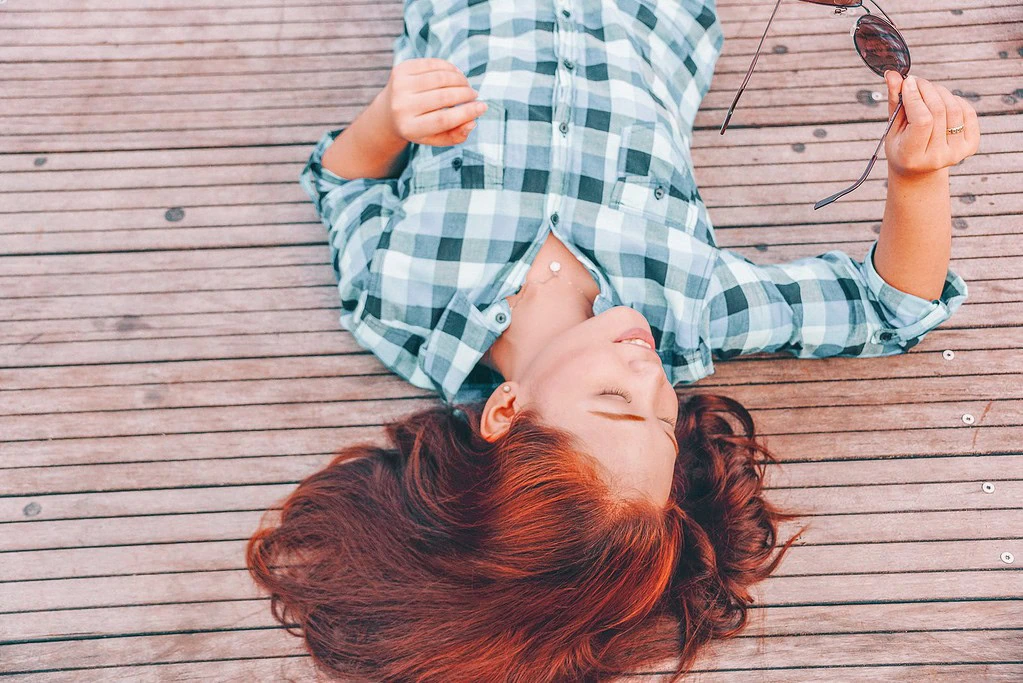
Solo Female Travelers’ Challenges – And What Brands Can Do About It
Brands need to think beyond the typical traveler’s needs and address the unique challenges solo female travelers encounter. Here are the top obstacles they face and how brands can solve them:
1, Higher Costs: The Solo Supplement Problem
Traveling alone often means paying more, whether it’s solo supplements for cruises or higher rates for solo rooms.
- Solution: Consider pricing strategies like discounted single occupancy rates or shared rooms designed for women who want community. Virgin Voyages’ no-solo-supplement policy has positioned them as a leader in this space, proving that clever pricing can attract solo travelers without sacrificing profit.
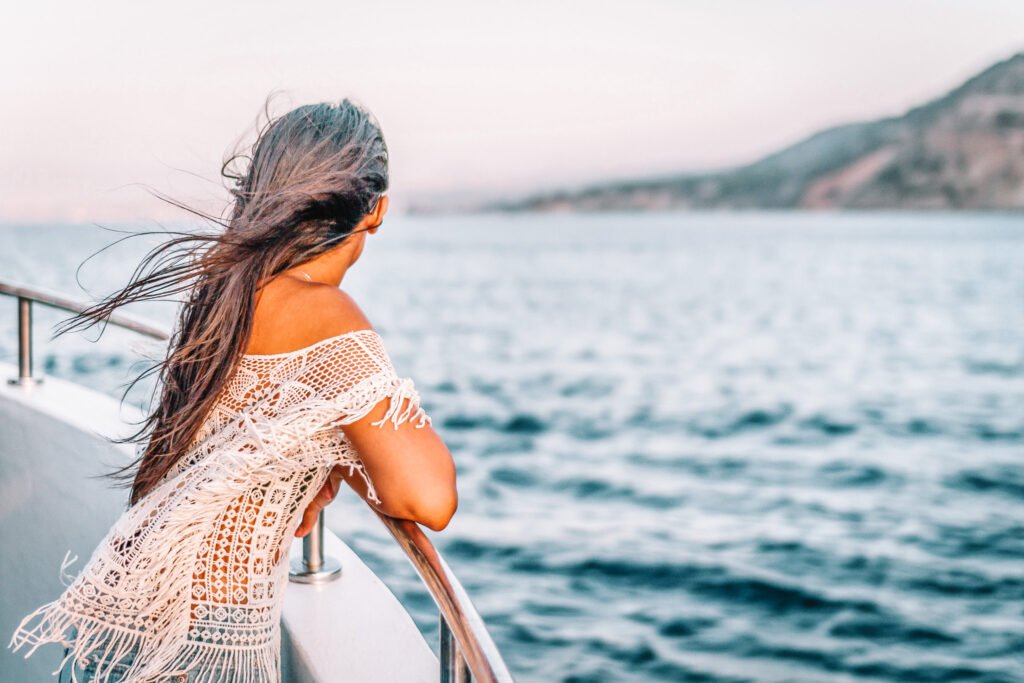
2, Safety: Beyond the Tick Box
While safety is a top priority, many brands treat it as a box to tick rather than an integral part of their product. Solo female travelers want to feel truly supported, not just “protected.”
- Solution: Develop comprehensive safety protocols that go beyond the basics. Promote your efforts in your marketing, create women-only spaces, and partner with safety apps like Tourlina or bSafe to offer real-time support. Showcase these features in testimonials and case studies from real solo female travelers.

3, Misaligned Marketing Messages
Many brands still market to women using outdated, fear-based messaging. Solo female travelers don’t want to be told to “be careful” – they want to be encouraged to explore.
- Solution: Flip the narrative. Speak to confidence, strength, and adventure. Brands like REI and Patagonia have nailed this with messaging that celebrates the freedom and empowerment of women’s exploration, rather than framing it as scary or overwhelming.
Need ideas? Read Travel Campaign Ideas Solo Female Travelers Can’t Resist! for fresh, bold ways to connect with solo travelers.
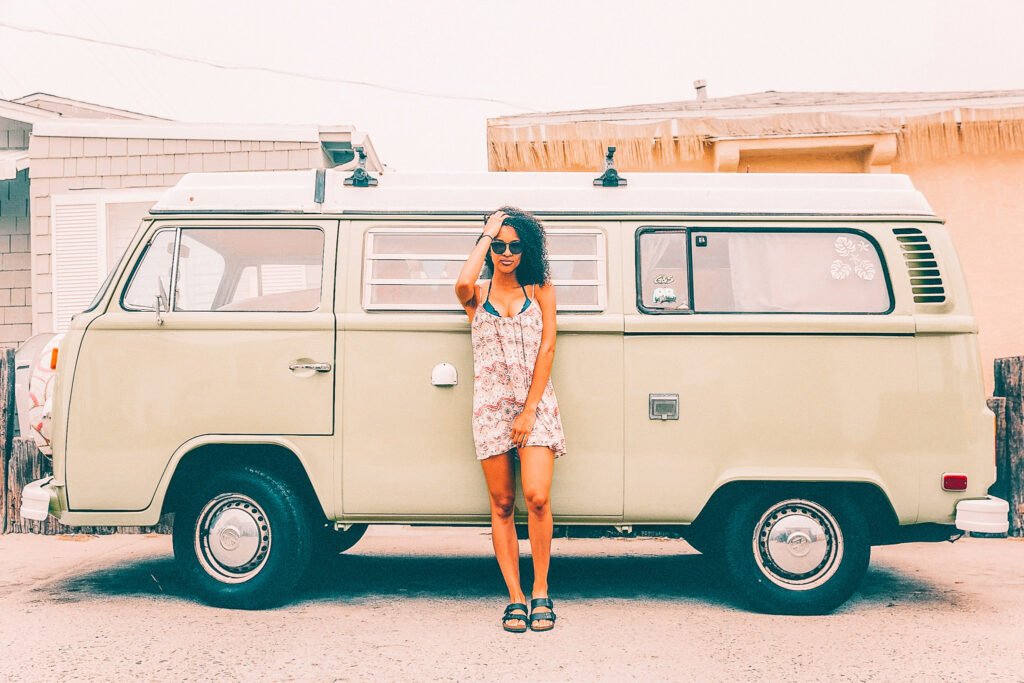
Real-Life Examples: Brands Leading the Way and Those Lagging
Brands Getting It Right
1, G Adventures
- What They’re Doing Right: G Adventures offers women-only tours that focus on community connections. Their marketing shows how solo travelers can have authentic, immersive travel while staying safe and supported.
- Key Takeaway: Authenticity is key. Create tours and services that align with solo travelers’ values and offer experiences they can’t get elsewhere.
2, Intrepid Travel
- What They’re Doing Right: Intrepid’s Women’s Expeditions provides women-only tours led by female guides, focusing on cultural immersion and community, and opportunities to connect with other women travelers. Their experiences go beyond traditional sightseeing to foster deep connections with locals in each destination.
- Key Takeaway: Don’t just cater to women – empower them with meaningful and supportive experiences.
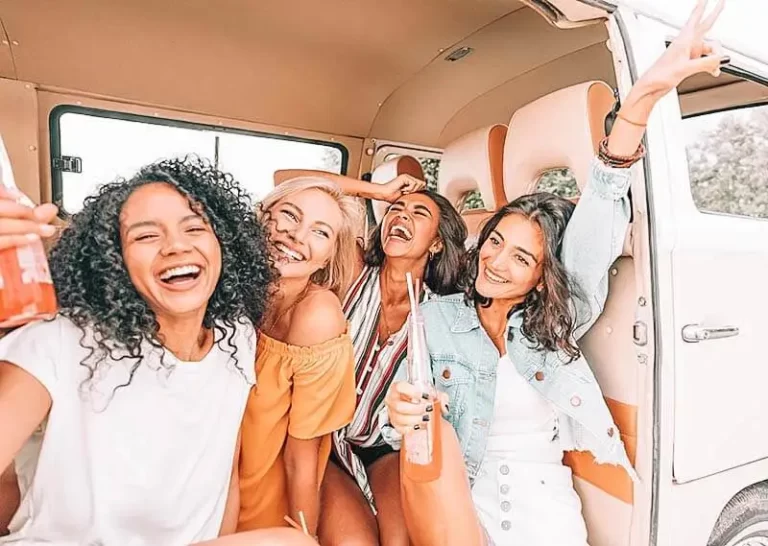
3, Airbnb’s Solo Traveler Initiative
- What They’re Doing Right: Airbnb’s “Solo Traveler” feature has safety checklists, vetted host recommendations, and enhanced host communication features. They’ve built trust and security into their product design, which sets them apart in the accommodation space.
- Key Takeaway: Make safety part of your product experience, not an afterthought.
Airbnb – Solo Traveler feature:
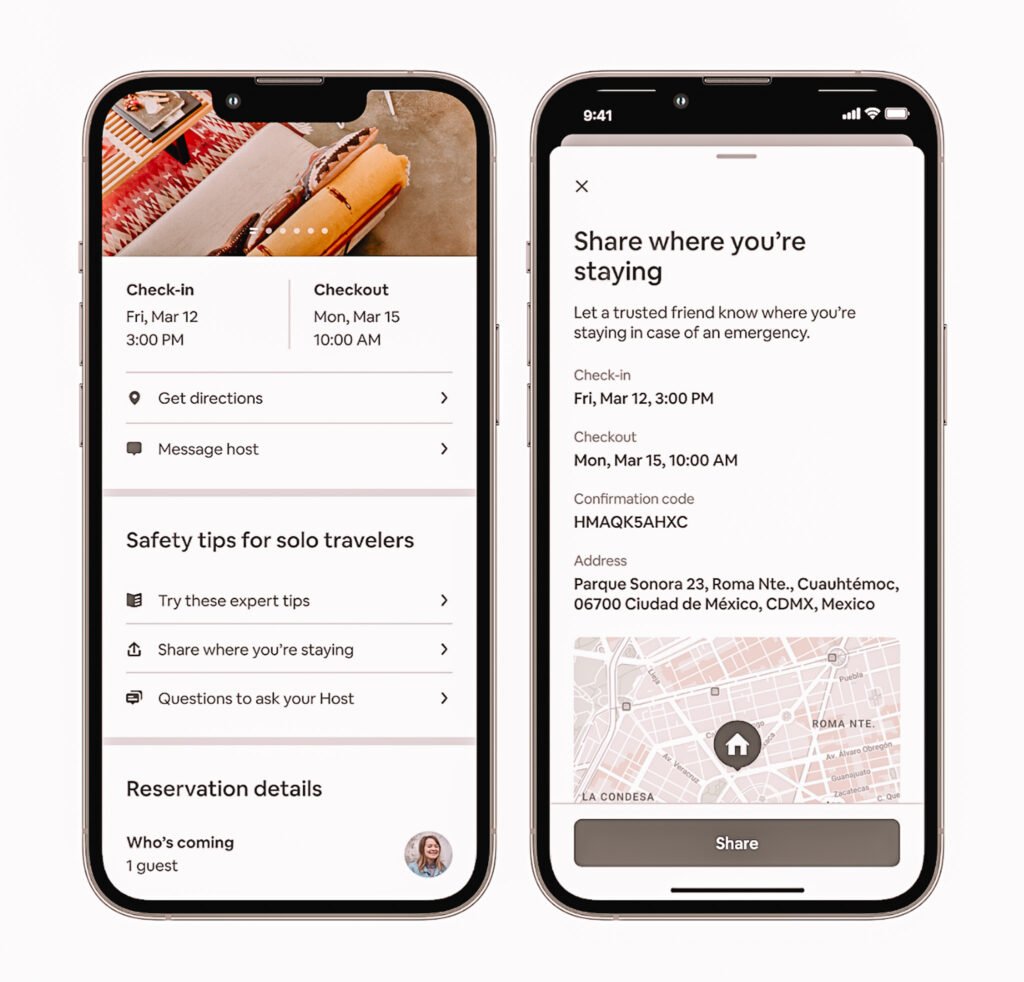
4, REI’s Women-Specific Campaigns
- What They’re Doing Right: REI’s campaigns empower women to take on outdoor challenges with confidence. Their storytelling celebrates women’s strength, resilience, and community, making solo travel feel accessible and inspiring.
- Key Takeaway: Storytelling that celebrates strength and independence resonates far better than traditional, safety-centric messages.
REI – Force of Nature campaign:
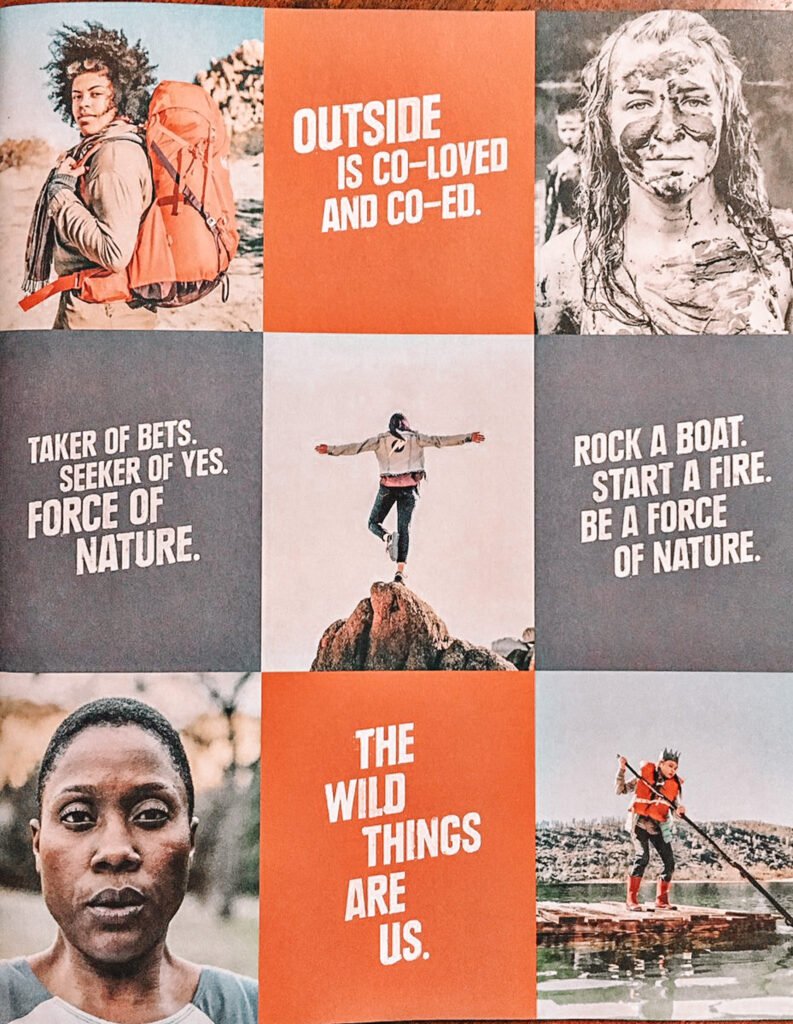
Brands That Need to Up Their Game
1, Traditional Cruise Lines
- Where They’re Falling Short: Many cruise lines still charge high solo supplements, making cruising less accessible for solo travelers. Women-specific programming and safety measures are lacking.
- Suggested Improvement: Reduce or get rid of solo supplements. Introduce women-centric programs and create safe, engaging environments onboard through networking events, women-only lounges, and onboard women guides.
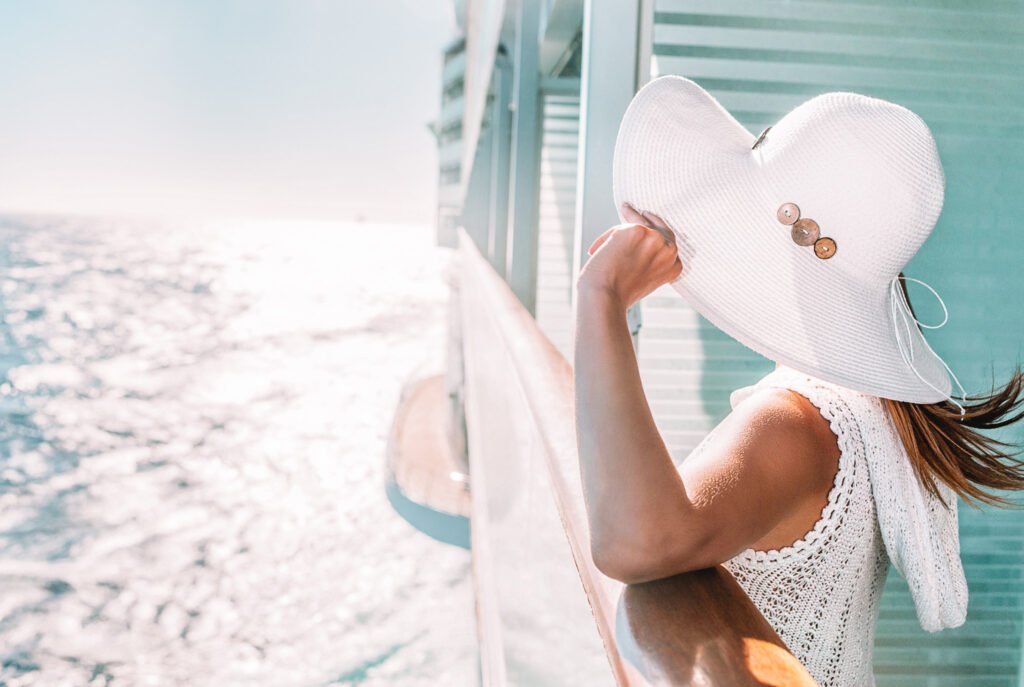
2, High-End Hotel Chains
- Where They’re Falling Short: Despite having the resources, many luxury hotels lack women-centric amenities like women-only floors, enhanced security, and services for solo female travelers.
- Suggested Improvement: Create women-only floors, prioritize security in room design, and offer additional services like female guides for local tours.
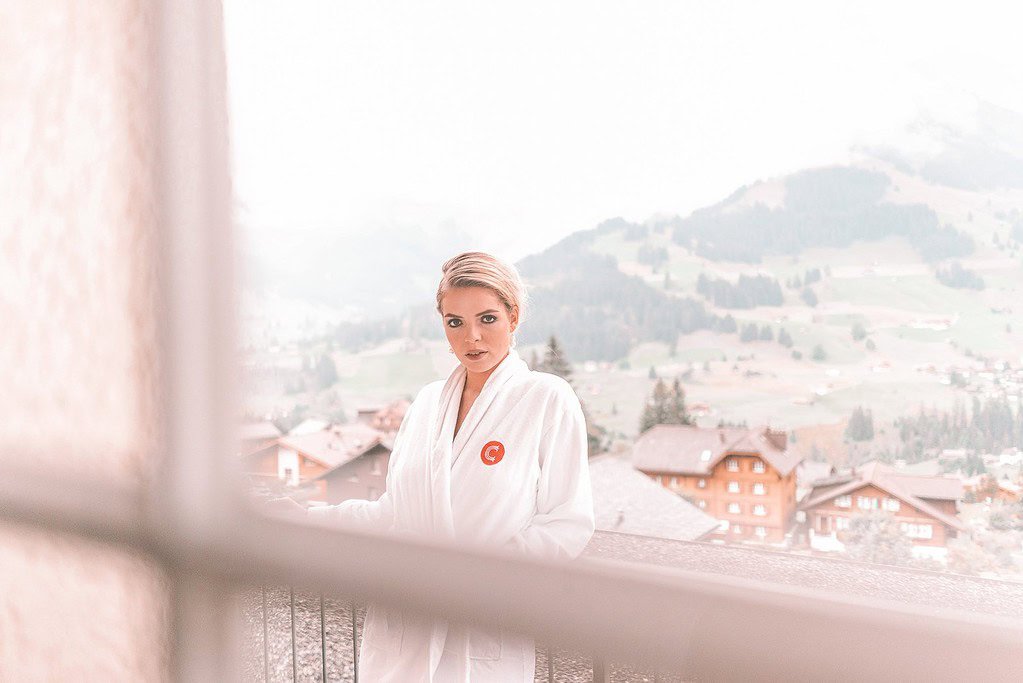
3, Large Tour Operators
- Where They’re Falling Short: Some tour operators focus on couples and groups and ignore solo women travelers. Their marketing often portrays solo travel as something to “cope with” rather than something to celebrate.
- Suggested Improvement: Create tours that prioritize solo experiences, offer women-only itineraries, and include a more celebratory tone in marketing.
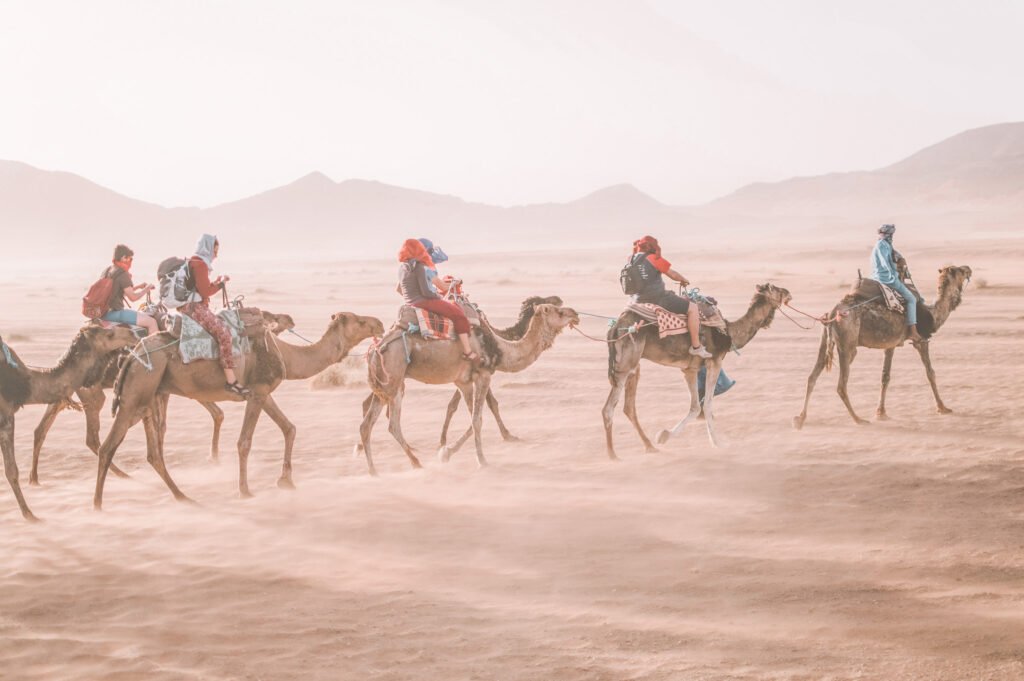
How to Create a Strategy That Works: Actionable Tips for Brands
To stand out in the competitive tourism industry and connect with solo female travelers, brands need to offer more than just products – they need to provide solutions and support that speaks to this audience.
- Develop Women-Centric Offerings
- Offer more than just women-only tours – think safety features, community events, and services that encourage meaningful connections with other women travelers.
- Emphasize Safety as a Core Value
- Highlight specific safety features and protocols across all touchpoints. Use positive testimonials and case studies to show your brand is serious about creating safe spaces for women traveling solo.
- Partner with Female-Led Businesses
- Collaborate with women-led businesses, safety tech companies, and women-centric organizations. This adds credibility and shows your brand’s commitment to meeting the needs of female customers in the solo travel market.
- Create Educational Content
- Publish in-depth guides, host webinars, or offer live Q&A sessions that address common concerns for solo female travelers. Use this content to position your brand as a resource.
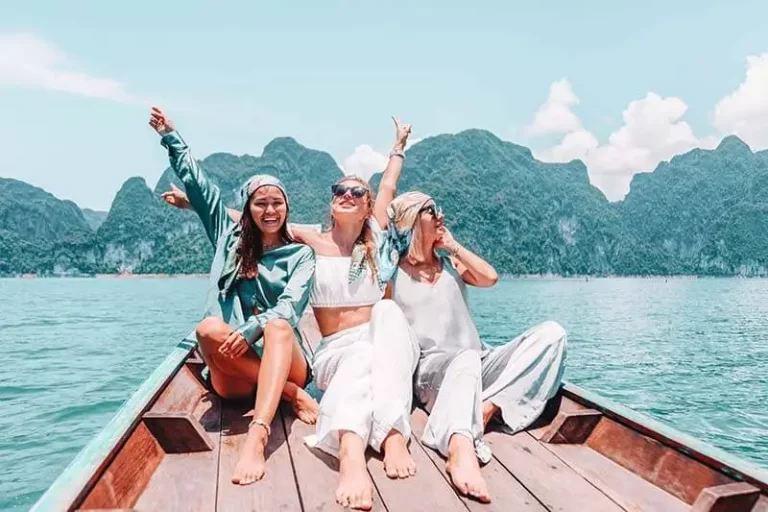
Marketing Communication Strategy for Solo Female Travelers
I wouldn’t be a girl from advertising if I didn’t add in a solid marketing communication strategy! For any brand trying to connect with solo female travelers, traditional channels like TV and radio just don’t have the right reach or relevance. Instead, a digital-first approach with targeted, experience-driven content is where the magic happens. Here’s the framework to do it across the marketing funnel.
Audience-First Approach: Focused Messaging Across Key Themes
The messaging pillars below will help brands connect with solo female travelers by speaking to what matters most to them: empowerment, safety with adventure, and connection. Each of these themes can be supported with targeted content to keep your brand relevant and relatable.
Messaging Pillars with Examples:
- Empowerment: Show solo female travelers in action, whether hiking a mountain, exploring a new city, or learning a new skill abroad. Use language that emphasizes freedom and independence, like “Discover your strength” or “The world is yours to explore.”
- Safety with Adventure: Safety is important, but it doesn’t have to come across as overly cautious or restrictive. Instead, frame it positively with examples like “Explore boldly, travel smart,” or “Adventure awaits – without the worry.”
- Connection: Highlight the opportunity to connect with cultures and communities. Phrases like “Meet the world, one city at a time” or “Find your global community” reinforce the appeal of solo travel as a way to build genuine connections.
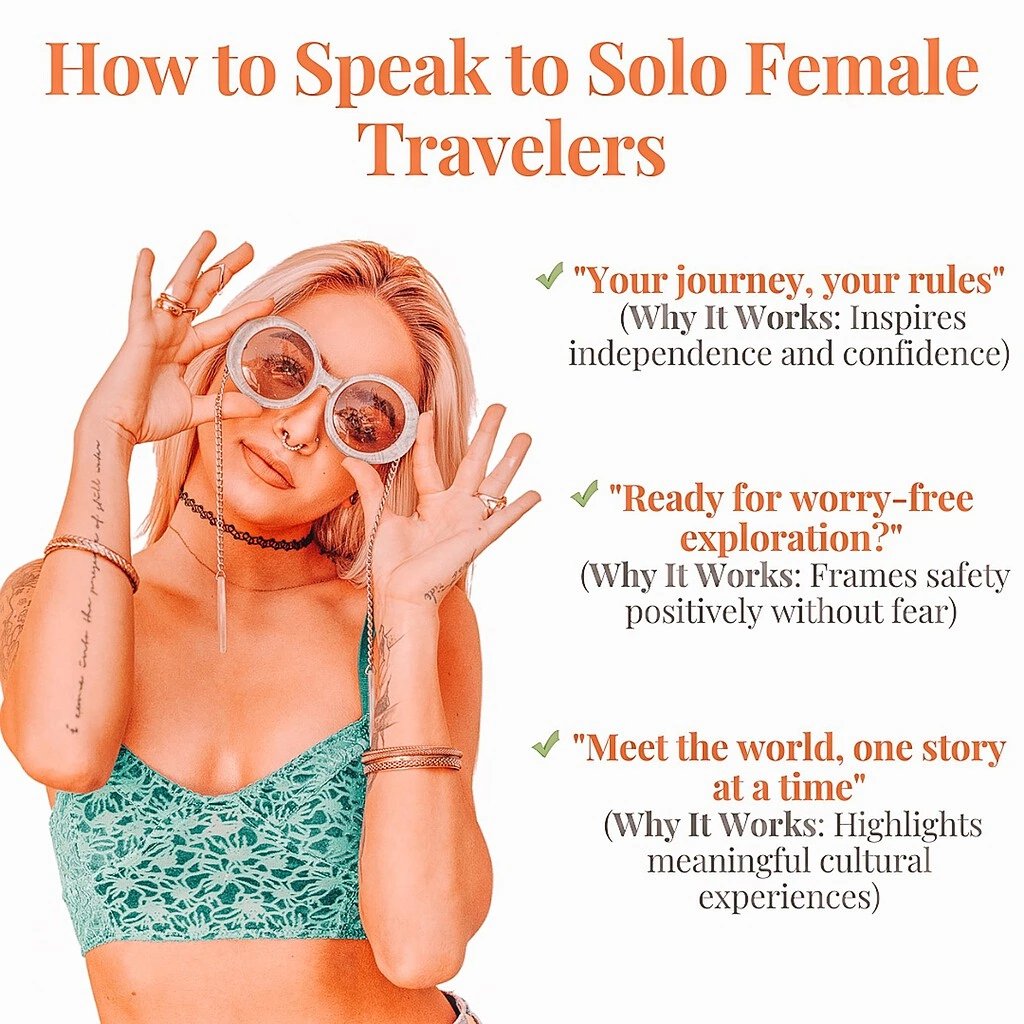
Media Strategy: Where to Focus
1, Digital-First, Low- and Mid-Funnel Targeting
Social media is where solo female travelers go for inspiration, community, and practical tips.
- Instagram: Share stories, reels, and posts about solo travel experiences, destination tips, and empowering stories from real travelers. Use Instagram Stories for quick travel tips.
- Pinterest: Create shareable pins like “Top Destinations for Solo Women” or “Safety Tips for Women Traveling Alone.” Pinterest is a discovery-driven platform, where users are actively looking for travel ideas.
- YouTube: Publish long-form content, solo travel guides, packing tips, and destination reviews. Collaborate with influencers who already speak to this audience.
For example, check out a few of my own Pinterest pins below, which focus on solo travel inspiration and practical tips.

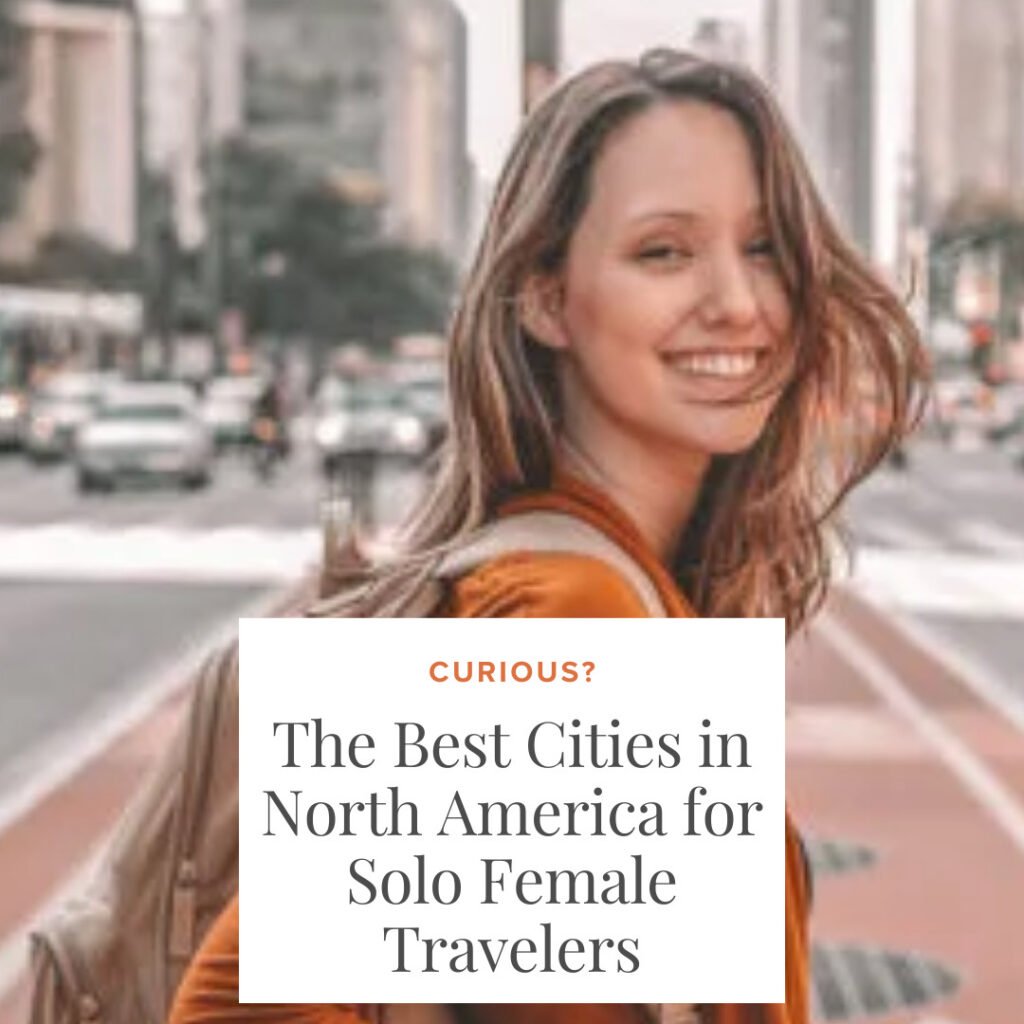
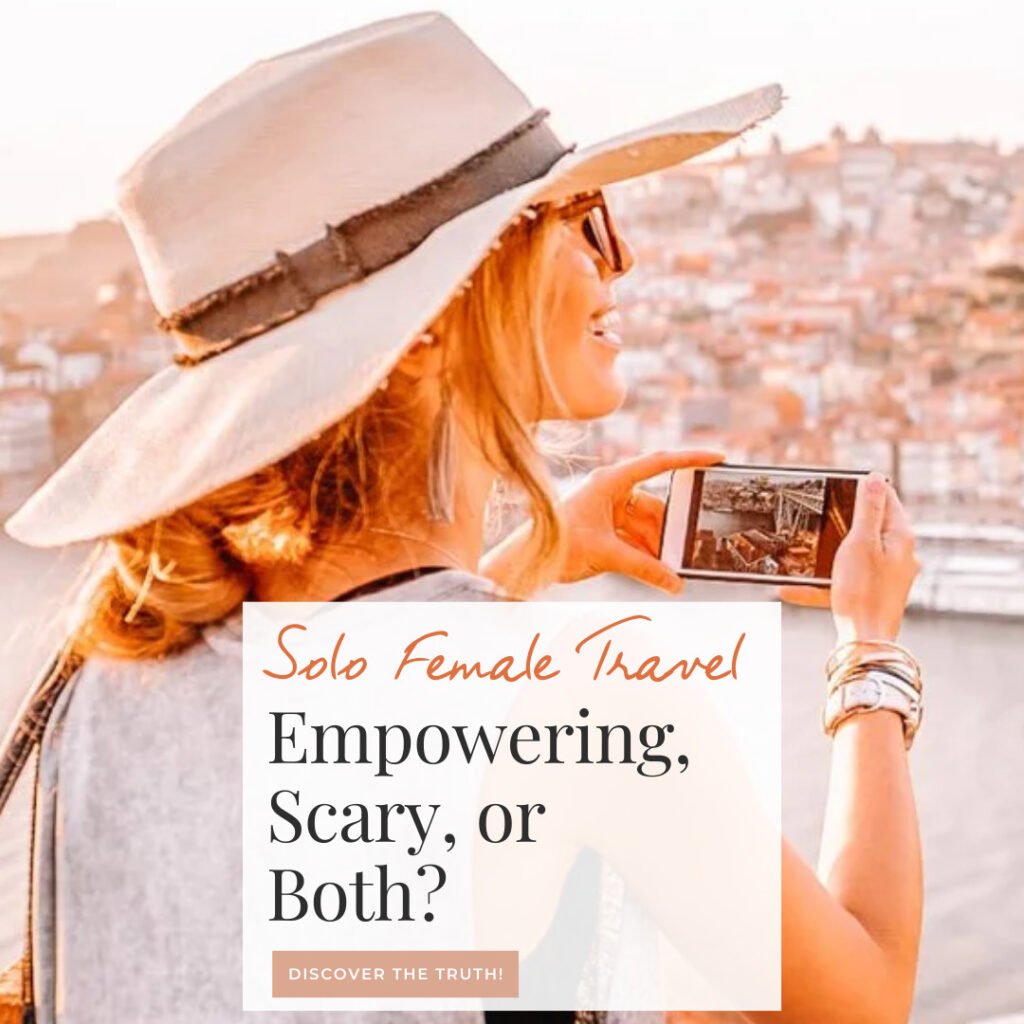
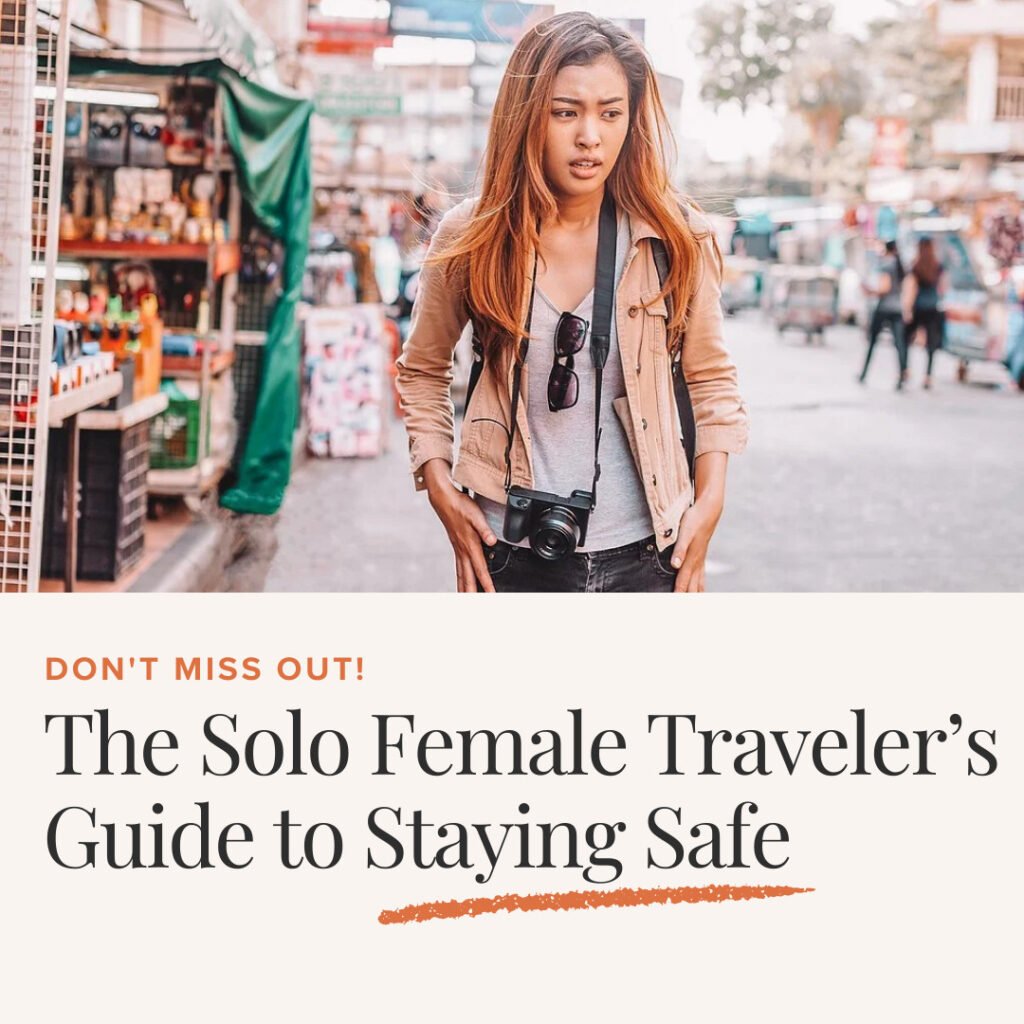
2, Content Marketing (Low-Funnel)
- Dedicated Blog Content: Create a series of blog posts focused on solo female travel, such as guides on safe destinations, cultural insights, and must-have travel gear. This helps your brand rank for relevant searches and keeps users coming back for trustworthy advice.
- Email Newsletters: Send curated solo travel tips, featured destinations, or updates on women-specific tours. Keep the tone warm and informative, reinforcing your brand as a go-to resource.
3, Influencer Marketing and Community-Driven Campaigns (Mid- to Low-Funnel)
- Partner with micro- and mid-level influencers who have built trust within the solo travel community. They can showcase travel tips, local customs, itineraries, and real-time travel experiences that feel relatable and inspiring.
- Community Platforms: Create a branded Facebook or Instagram group where solo female travelers can connect, ask questions, and share stories. This will help your brand feel like a community and position you as the supportive expert.
For more tips, check out How Brands Can Reach Solo Female Travelers on Social Media.
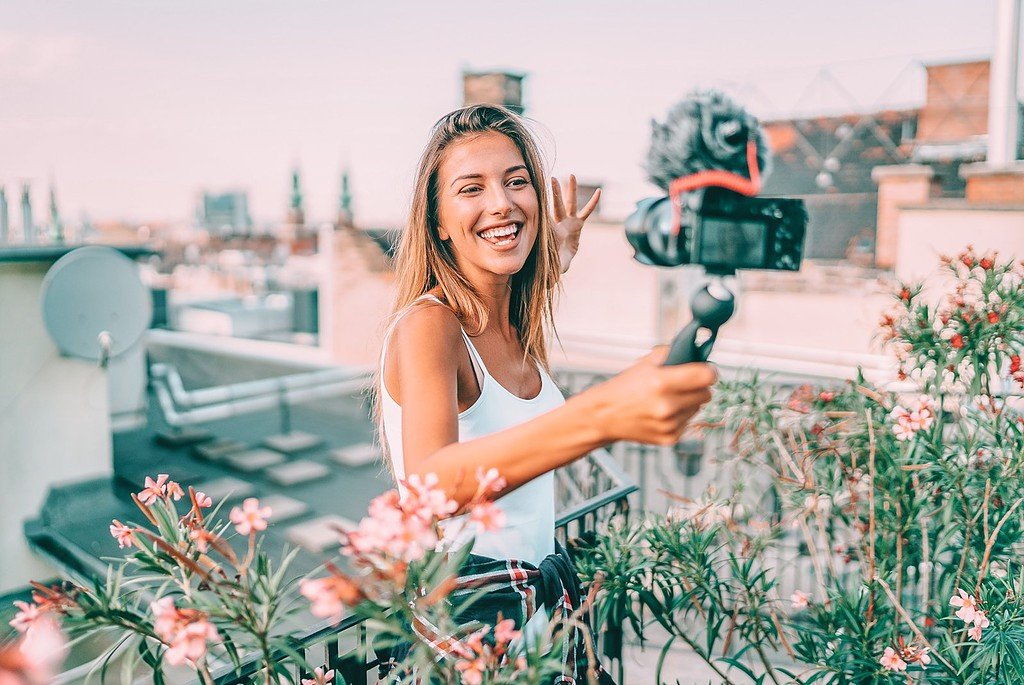
4, Paid Digital Campaigns with Precision Targeting
- Retargeting Ads (Low-Funnel): Use retargeting ads on social platforms to re-engage users who have visited your site or interacted with your content. Show them offers or blog posts that match their previous engagement, reinforcing familiarity.
- Search Ads and Targeted Content: Use keywords such as “solo female travel destinations” or “best tours for solo women.” This approach reaches users who are actively searching for information, positioning your brand as a trusted source.
- Interest-Based Targeting: Platforms like Facebook and Instagram allow brands to target users based on specific interests, like solo travel, adventure travel & sports, or female empowerment. This type of targeting is effective for reaching women who are likely already interested in solo travel.
Campaign Ideas and Messaging Tips
1, Empowering Video Series
Create a series of short videos featuring real solo female travelers sharing their journeys. Focus on empowerment and self-discovery, showcasing everything from personal triumphs to the unique freedom of solo travel. Share these on YouTube and Instagram to build emotional connections with viewers.
2, “Ask Me Anything” Sessions with Influencers
Host live Q&A sessions with popular female travel influencers on Instagram or Facebook. This gives potential travelers a chance to ask questions and build confidence in solo travel, while associating your brand with credible voices in the community.
3, Interactive Digital Guides and Tools
Offer free downloadable guides, packing lists, or itineraries for solo female travelers. You could even create interactive tools, like a “Solo Travel Budget Calculator” or “Top Safety Tips Checklist,” to engage users with practical resources. Promote these assets via social media ads or in email newsletters.
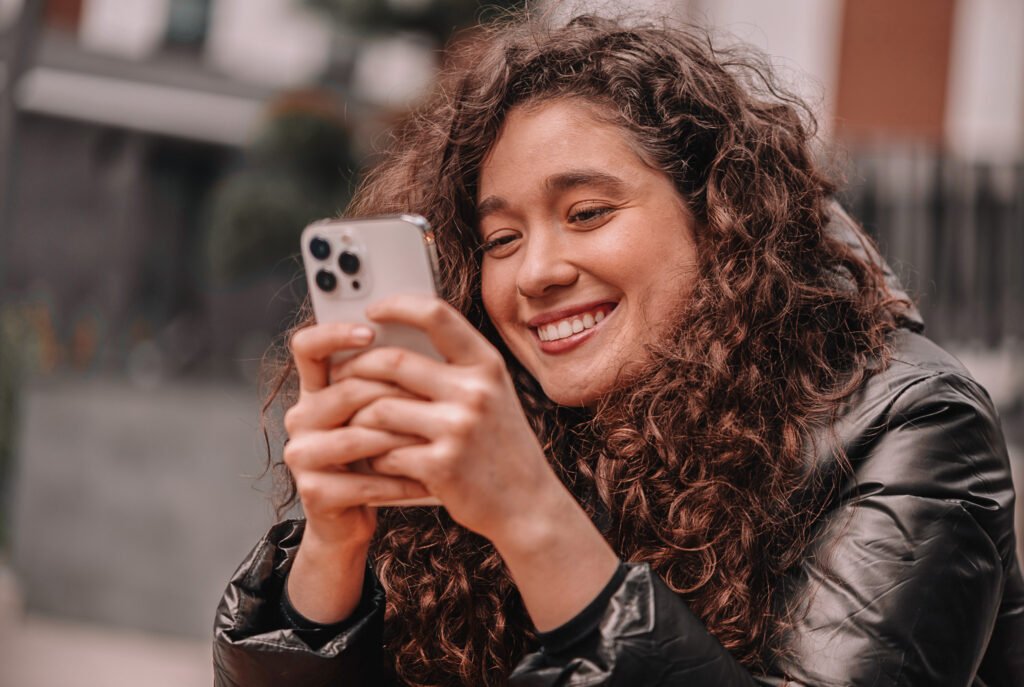
Take a Quiz: Is Your Brand Ready for the Solo Female Travel Market?
1, Does your brand offer women-specific products, services, or experiences?
a) Yes, we have multiple women-centric offerings.
b) Yes, but only a few – there’s room to grow.
c) Not yet, but we’re exploring this option.
d) No, this is not a focus for us.
2, How does your brand address safety concerns for solo female travelers?
a) We’ve built safety features into our products and highlight them in our messaging.
b) We partner with safety tech companies or apps.
c) We provide clear safety guidelines and 24/7 support for solo travelers.
d) We haven’t focused on safety measures specifically for solo female travelers.
3, Does your brand gather feedback from solo female travelers?
a) Yes, we regularly conduct surveys, host focus groups, and engage on social media.
b) Sometimes, but it’s not consistent or structured.
c) No, but we’re interested in starting this process.
d) Not currently, and it’s not something we’ve prioritized.
4, Do you partner with women-led businesses?
a) Yes, we have multiple collaborations in place.
b) We’ve partnered with some, but it’s not a core strategy.
c) We’re exploring these partnerships.
d) No, we haven’t explored this yet.
5, Is your marketing messaging focused on empowerment, confidence, and connection?
a) Absolutely – empowerment is a core theme in our messaging.
b) We include these themes sometimes, but we’re still refining our voice.
c) No, our messaging is more focused on general travel themes.
d) We haven’t considered specific themes related to solo female travelers.
Results:
- Mostly A’s: “Solo Travel Rockstar”: Your brand is killing it! You’ve nailed women-specific products, safety features, and empowering messaging. Keep innovating and consider more partnerships to stay on top.
- Mostly B’s: “On the Right Path”: You’re doing well but can do more. Strengthen your messaging, expand women-centric offerings, and build deeper connections with solo female travelers.
- Mostly C’s: “Room for Growth”: You’ve spotted the opportunity but haven’t fully tapped into it. Focus on women-specific products, address safety concerns, and engage with the community.
- Mostly D’s: “Just Getting Started”: You’ve got work to do. Start by understanding solo female travelers’ needs, improving safety features, and shifting your messaging to empowerment.
Frequently Asked Questions (FAQs)
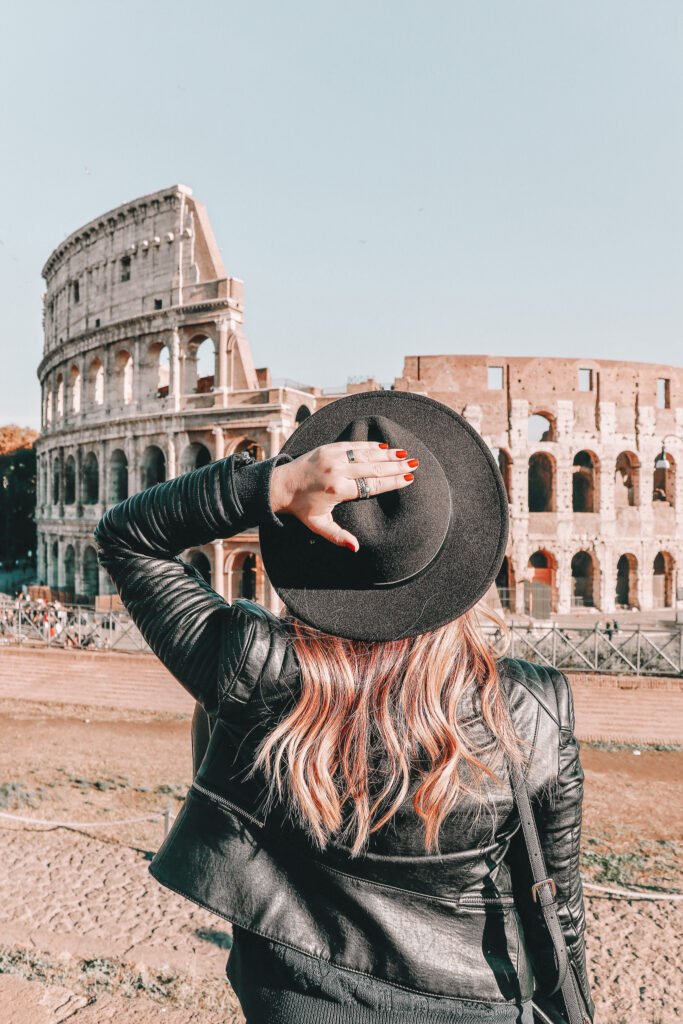
Overemphasizing safety in a way that feels patronizing. Focus on empowerment and confidence instead.
Not always. It’s more about inclusivity – design flexible options that genuinely meet their needs.
100%. When done authentically, it builds trust, resonates with this target audience, and turns customers into advocates for your brand.
It’s All About Trust and Authenticity
Solo female travel is here to stay. Brands that truly get what solo female travelers need and create thoughtful, empowering experiences will stand out now and for years to come.
Want to lead the way? It’s simple: listen, learn, and create offerings that genuinely resonate. The loyalty you’ll build is worth it.
